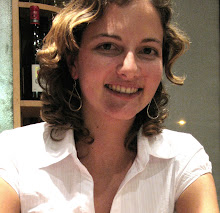
The following is an article I recently wrote about the Rohingya, Muslim refugees from Myanmar living for decades in southern Bangladesh. A final (considerably re-written) version appeared last week in The Economist (http://economist.com/world/asia/displaystory.cfm?story_id=10214763), but since some people were wondering what of if was mine, here's the original:
Between Mud and a Hard Place: Muslim Refugees Left With Nowhere Good to Go
As international pressure mounts against Myanmar’s repressive military regime, a community of long-suffering refugees in Bangladesh are glued to their radios hoping that any whiffs of democracy could give them the chance to reclaim their land and their dignity. Sadly, they may be waiting in vain. For unlike the political exiles hovering in Thailand, the Rohingya, an impoverished Muslim minority chased across the border decades ago, have never been very welcome at home.
State-sponsored persecution of Burmese Muslims may have reached its pinnacle in recent decades – the 1997 attacks on Yangon mosques were led by military intelligence officers thinly disguised as Buddhist monks, according to Human Rights Watch’s Myanmar consultant – but the hostility is nothing new. Anti-Muslim sentiments have been simmering for centuries in Burma. The dark-skinned Rohingya of the north, who have more in common physically and culturally with Bangladeshis than with most Burmese, have always been singled out for abuse.
Since their ascension to power, the junta have ostracized the Rohingya by refusing to recognize them as Burmese citizens, calling them only “Residents of Rakhine State.” An estimated 97% today have no nationality. The military regime routinely presses them into slave labour, severely restricts their rights to travel and marry, and denies them access to medical care and education.
The Rohingya have been fleeing systematic violence and repression in Myanmar by crossing into Bangladesh since 1978. But the Bangladeshis have been reluctant hosts. Citing overpopulation and land scarcity, successive governments have forcibly repatriated the refugees. 250,000 were expelled between 1991 and 1992, and an additional 230,000 since then.
For the past 15 years Bangladesh has steadfastly refused to grant the Rohingya refugees status. Only two official UNHCR camps now remain in the southern division of Chittagong. But most of those repatriated, finding themselves thrust back into the same conditions they had fled, trickled steadily back to squat in makeshift shelters and communities just across the border. Today around 8,000 live in an unofficial camp called Tal, while another 200,000 have settled in the surrounding area.
Tal was born out of Operation Clean Heart, the ominous code name for a 2002 crackdown in which thousands of Rohingya were rooted out of communities across southern Bangladesh. “I guess they had a look at how the Nazis did it”, speculated Médecins Sans Frontièr’s Frido Herinckx , describing how police threatened local Bangladeshis with imprisonment unless they reported on their Burmese neighbours. But instead of returning to Myanmar, thousands of suddenly homeless Rohingya regrouped and settled on a 30-meter-wide stretch of mud along the banks of the Naf River.

The residents of Tal live in abysmal poverty, with as many as 12 people crammed into flimsy shelters patched together from reeds and plastic tarps. Floods regularly leave up to 80% of the riverside camp underwater, and hostility from the local community often leads to violence. Still, most are convinced that life there is an improvement over the daily humiliations suffered in Myanmar. “If I can’t even say ‘this house is mine,’ how can I live there?” said one 32-year-old man. “The government in Burma made us give them everything, so we left.”
But life in Bangladesh may be on the upswing. The government has recently shown signs of softening its policies, including plans to re-locate Tal to a drier and more permanent location. The humanitarian community hopes the Rohingya will eventually be granted Bangladeshi citizenship, as was recently the case with thousands of Urdu-speaking Biharis, although such a move could be decades away.
Most Rohingya insist that if democracy is established in Myanmar, they will go back. But whether democracy will grant them their long-awaited rights as citizens is another matter.


 Since its independence, Guinea has been a country of almost extraordinary peace. Despite its bellicose neighbors – Liberia, Sierra Leone, Cote d’Ivoire and Guinea Bissau all border – Guinea resisted all temptation to plunge into civil war, and even its token military coup was pulled off in 1984 with a minimum of bloodshed and comparatively few bruised egos.
Since its independence, Guinea has been a country of almost extraordinary peace. Despite its bellicose neighbors – Liberia, Sierra Leone, Cote d’Ivoire and Guinea Bissau all border – Guinea resisted all temptation to plunge into civil war, and even its token military coup was pulled off in 1984 with a minimum of bloodshed and comparatively few bruised egos.